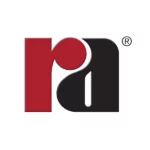NACE International has developed two significant standards relative to the use of materials in hydrogen sulfide-bearing environments.
MR0175/ISO 15156, Petroleum and Natural Gas Industries – Materials for use in H2S-containing Environments in Oil and Gas Production; and MR0103, Materials Resistant to Sulfide Stress Cracking in Corrosive Petroleum Refining Environments. Hydrogen sulfide is a poisonous gas and can cause stress corrosion cracking in steels and alloys. These standards define material limits suitable for use in hydrogen sulfide service conditions.
Stainless steels and select nickel alloys supplied by Rolled Alloys are suitable for use in hydrogen sulfide environments and may be ordered to satisfy these requirements.
300 series austenitic stainless steels are specified to “contain the following elements in the following proportions, expressed as mass fractions: C, 0.08 % max; Cr, 16 % min; Ni, 8 % min; P, 0.045 % max; S, 0.04 % max; Mn, 2.0 % max; and Si, 2.0 % max. Other alloying elements are permitted.” As a group, the following restrictions, as presented in Table A.2, apply:
– The material must be solution annealed and quenched or annealed and thermally stabilized.
– The material must be free of cold work intended to enhance mechanical properties.
– A maximum hardness of 22 HRC (237 HBW) applies.
These requirements are identical to those for MR0103. All 300 series austenitic stainless steels supplied by Rolled Alloys for stock are produced to standard ASTM/ASME specifications, primarily A/SA 240 for flat products and A/SA 479 for long products. These standards require the material to be supplied in the annealed and quenched condition. Rolled Alloys does not enhance the mechanical properties of these products through cold work. Provided the hardness values reported on the material test report reflect hardness levels below 22 HRC (237 HBW), these materials comply with MR0175 Table A.2 and MR0103 Section 13.5.
AL-6XN© (UNS N08367) is a material of Type 3b. AL-6XN is supplied in the solution annealed condition and satisfies the requirements of Table A.8. Therefore, MR0175 does not require a hardness to be reported for annealed AL-6XN. AL-6XN also meets the requirements of MR0103 Section 13.7 provided the reported hardness is at or below 35 HRC.
Alloy 625 (N06625) provided by Rolled Alloys is annealed and satisfies the requirements outlined in Table A.13 of MR0175. Therefore, MR0175 does not require a hardness to be reported for annealed material. In addition, 625 and 600 conform to MR0103 Section 14.1.1, provided the reported hardness is at or below 35 HRC.
Duplex alloys 2205 (S31803/S32205) and ZERON® 100 (S32760) supplied by Rolled Alloys are provided in the annealed and quenched condition and have a ferrite content between 35% and 65%. As such, they satisfy the requirements for these materials, as stated in Table A.24 of MR0175. Therefore, MR0175 does not require a hardness to be reported for annealed material. These materials also satisfy MR0103, Section 13.8.1, provided the reported hardness is at or below 28 HRC.
All the tables specify any and all limitations for use. These limits include temperatures, partial pressures of H2S, chloride concentrations, pH, comments, and any additional restrictions or requirements.
Since all these materials are supplied to specifications that ensure compliance with the MR0175 requirements, the producing mills may not show MR0175 compliance on test reports. One can verify compliance by asking one of the Rolled Alloys Metallurgical Services staff.
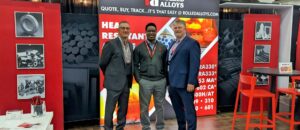
Trade Shows
Come talk to a Rolled Alloys representative in person about your project. You can find us at these trade shows.

March Mania 2025
Every Online Order in March is a Chance to Win One of 8 Great Prizes!
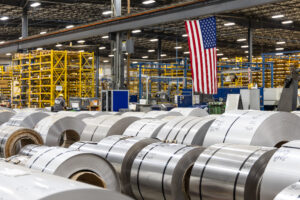
Instant Pricing on Nickel, Stainless Steel, Duplex, and Titanium
Get real-time pricing and availability for nickel, stainless steel, duplex, and titanium—all in one place.
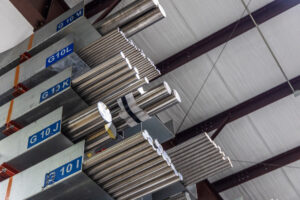
New and Expanded Stock for 2025
New Titanium, Stainless, Nickel and Cobalt in Stock Now – CP Ti Grade 2, 635, 718 and More!
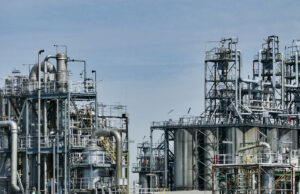
History and Uses of Alloy 800
Discover the evolution of Alloy 800, from its origins during the 1950s to modern derivatives like Alloy 800H/800HT. Learn about its high-temperature strength, petrochemical applications, and commercial availability today.
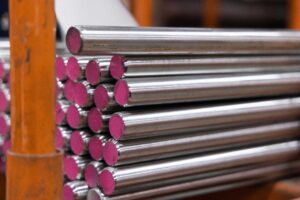
New Bar Stock Available
New Round and Flat Bar Products in Stock at Rolled Alloys



